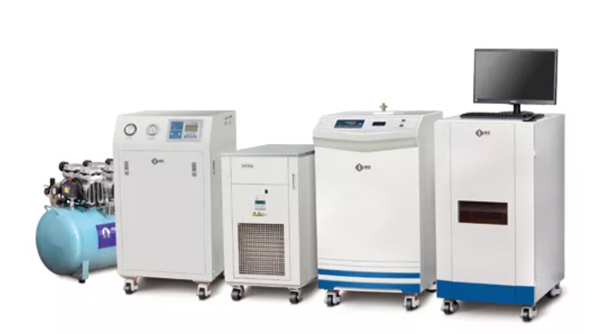Introduction
As we know the principle of NMR test pore distribution, the first step is to fully saturate the sample with water, and then measure the original porosity and pore size distribution of the sample according to the correspondence between the relaxation time of the water in the pore and the pore radius.
For samples such as pulverized coal and soil, the original pore size distribution could not be accurately measured due to saturation. In this paper, the diameter is rare, that is, during the saturation and wetting process, water wets the pulverized coal and water enters the pores to generate a signal characterization. The pore diameter of the pore, so as to quantitatively detect the pore size wetted by water (pores that are not wetted by water will not produce a nuclear magnetic signal), this method extends the wettability research object to pores of different sizes at once, Calculate the pore size wetting rate of pores of different sizes.
Knowledge about wettability
1. What is wettability?
Wettability refers to the ability of a fluid to flow on a solid surface and preferentially adhere or wet in the presence of other non-miscible fluids. The basic principle is the interaction between fluid and solid, fluid and fluid molecules near the interface. Therefore, accurately and quickly determining the wettability of coal during the mining process has important guiding significance for increasing the production of coalbed methane.
2. What are the commonly used detection methods?
There are many qualitative and quantitative methods commonly used to characterize wettability: contact angle, centrifugal pump, droplet method, dialysis method, NMR method, etc. However, NMR is a non-destructive and rapid detection method that can study both liquid wetting and gas wetting.
3. Methods of wettability research by NMR in previous studies
There are two qualitative and quantitative methods commonly used to study wettability by NMR
Quantitative method: Use the NMR wetting index (IW) to calculate the equation:

Among them, the value of IW is between -1 and 1, where -1 represents strong oil wetness, 0 represents no wetting preference, and 1 represents strong water wetness.
Qualitative method:
For coal, the degree of change in wettability can be judged by studying the mutual transformation between the states of adsorbed water, capillary-bound water and free water in coal.
Method
1: Use different pretreatment time, use NMR (LF-NMR) to study the surface pore size and distribution of coal powder after wetting, and analyze the pore wetting rate in situ.
2: For the first time, the correlation between the wettability of pore water on the coal surface and the recovery rate of flotation was established, so as to reveal the influence of the wetted coal pores on the flotation behavior of coal.
3. Macropores and total pores have a good linear relationship with flotation recovery.

Figure 1. Process flow of coal powder wetting test
In-situ analysis of coal pore wettability
As shown in the figure above, the low-rank coal powder with a particle size of 0.25-0.125mm. The wetting process of coal powder is shown in Figure 1. 3g of coal sample is placed in an oven to be thoroughly dried, and then 40ml of water is added for magnetic force Stirring, the stirring time is set to 0, 1, 3, 5, 7, 10 min. After that, the water is removed, and then the NMR test is performed.
Flotation test
According to the flotation standards of the mining processing industry, the flotation recovery rate (the ratio of the weight of the foam product to the weight of the flotation feed) is used as the result of this test, and the specific flotation process will not be repeated here.
Special note: In this study, the ash content of foam products of low-ash coal samples was not analyzed.

 NIUMAG
NIUMAG